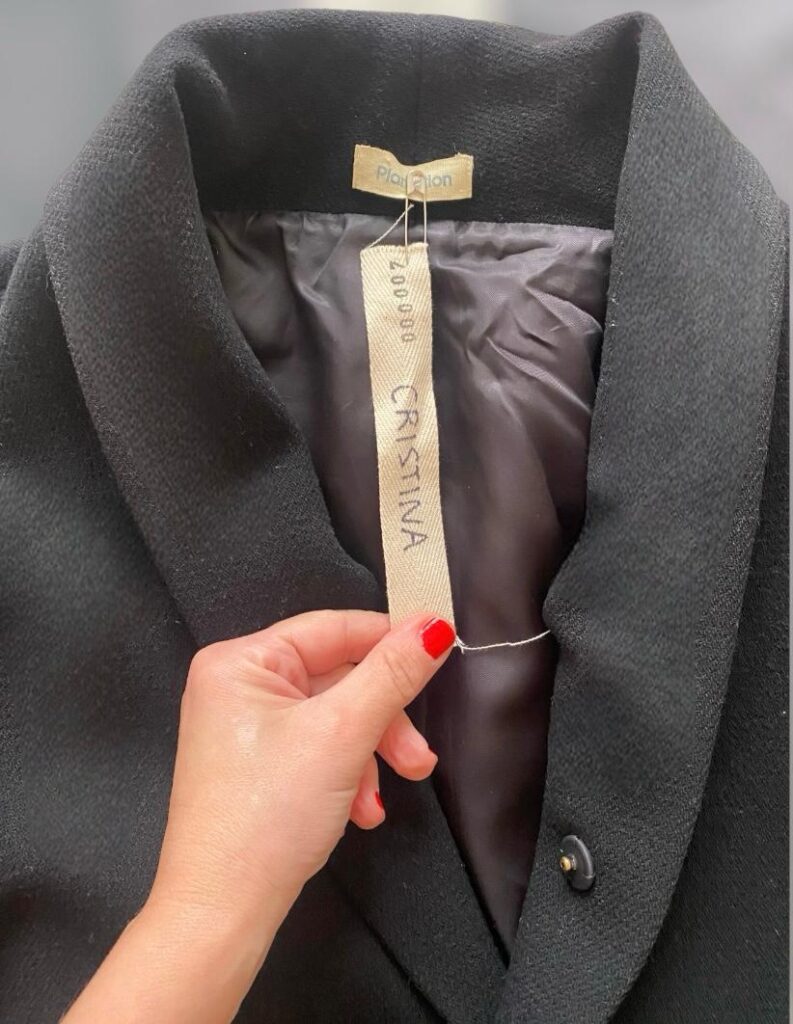A meaningful interpretation of fashion
On February 2nd, we attended “Moda Povera VI: Les Vêtements Des Autres” – a poetic performance by Olivier Saillard. It took place at Triennale Milano in collaboration with Fondation Cartier pour l’art contemporain.
As a matter of fact, considering the latest events associated with fashion, Triennale Milano is emerging as the premier destination to celebrate fashion as culture. Which seems a big challenge lately.
On the occasion of Ron Mueck’s exhibition, open until March 10, Triennale Milano and Fondation Cartier pour l’art contemporain give carte blanche to the fashion historian Olivier Saillard, who will curate three performances part of the “Nomadic Nights.”

Olivier Saillard in his words
To introduce the event, we think it makes sense to share Saillard’s words, as we find them remarkably poignant:
“Fashion weeks serve to present, season after season, a prospective vision of the clothes to be worn in the future. Thanks to fashion shows, a theatre of appearances is created, not only on the catwalks but, above all, among the guests, famous people or unknown. Strangely enough, the dress presented, of which one can assess with relative comparison the similar creativity from one designer to another, no longer seems to be a priority. The person who promotes it with a post counts more.
Olivier Saillard
My goal is to propose my idea of Fashion Week against this asphyxiated system. The one with which I want to show the intimate role of everyone’s clothes and give the spectator, the guest, the poetic position in the relationship with her clothes. To the new clothes, I contrast ours from the past, from the life we have lived through.
On the occasion of a participatory fashion show, I want to present a non-prospective collection like those of others, but on the contrary, a retrospective and introspective one.
For this reason, we recommend that every guest participate in the Moda Povera VI fashion show with a garment of their own choice. A beloved dress coming from your own wardrobe or a dress from a loved one. These clothes, left at the entrance, will be the object of a performance by a collective of ten models who will parade in each other’s clothes.
During an event in which the fashion show carves out a space among the spectators-actors, the models show the poetry of everyday life, of the ordinary, and of everyone’s clothing, creating a true ceremony of intimacy.
It’s no longer about the designer, the brand, or the logo. Here, it is a question of traces, of wear and tear, of caresses of clothes, carbon paper of each of us.
All types of clothes are accepted and searched for: used, everyday, banal or ordinary clothes, fashion clothes, work uniforms, formal dresses, etc…”
Moda Povera: the performance
At the entrance, the staff collects the garments and pins a beige grosgrain ribbon on which they write in black the name of the guest. Once tagged, the garments become an integral part of the performance. Each performer, wearing a black gown, calls a garment by name. Then, delicate touches, almost like caresses, communicate sensations, attention, memories. A subtle ambience of intimacy and care quietly unfolds and involves the spectators by creating an experience of participatory theatre.
Can clothes regain and convey a profound meaning? In the hands of Olivier Saillard, yes. An intense performance also thanks to the ten models who embody effortless elegance and grace, qualities now on the brink of disappearing.
Inspired by Arte Povera – an avant-garde movement of the 1960’s making use of simple, often natural or recycled material – Moda Povera by Olivier Saillard is a poetic interpretation of clothes. But it goes beyond that. In fact, it restores dignity to a fashion field that has lost any trace of culture.
Fashion that becomes art; fashion that is culture.